-
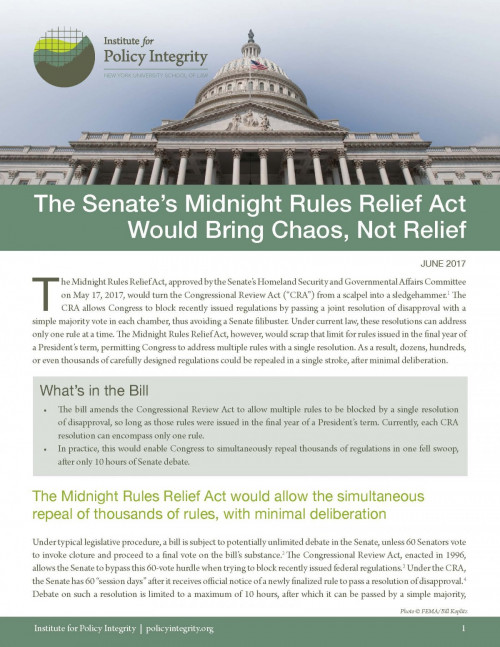
The Senate’s Midnight Rules Relief Act Would Bring Chaos, Not Relief
The Midnight Rules Relief Act, approved by the Senate’s Homeland Security and Governmental Affairs Committee on May 17, 2017, would turn the Congressional Review Act (“CRA”) from a scalpel into a sledgehammer. Our issue brief describes how this shift in regulatory policy would allow for quick repeals of public safeguards after only 10 hours of Senate debate and prevent similar rules from being enacted in the future.
-
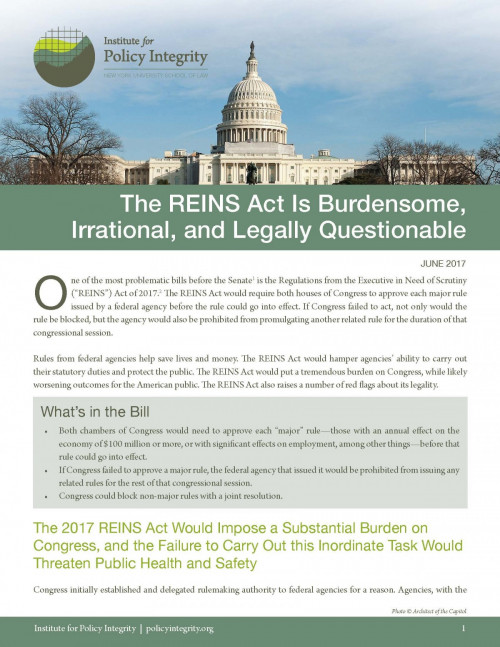
The REINS Act Is Burdensome, Irrational, and Legally Questionable
The Regulations from the Executive in Need of Scrutiny Act (“REINS Act”) would prevent agencies from issuing statutorily required rules unless approved by Congress. Our issue brief describes how this bill would create substantial burdens for Congress, worsen outcomes for the American public, and raise constitutional red flags by allowing Congress to repeal earlier statutes through inaction.
-
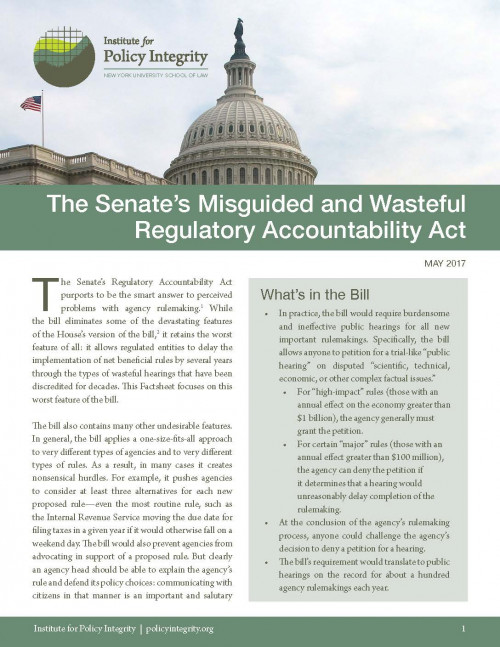
The Senate’s Misguided and Wasteful Regulatory Accountability Act
The Senate’s Regulatory Accountability Act would rewrite notice-and-comment rulemaking procedures and create extraordinarily burdensome hurdles in rule implementation by requiring trial-like public hearings. Our issue brief describes how this change to regulatory reform would give opponents of major public safeguards a valuable tool to delay implementation for years, without any regard to the harm that delay would impose on the health and safety of the American public.
-
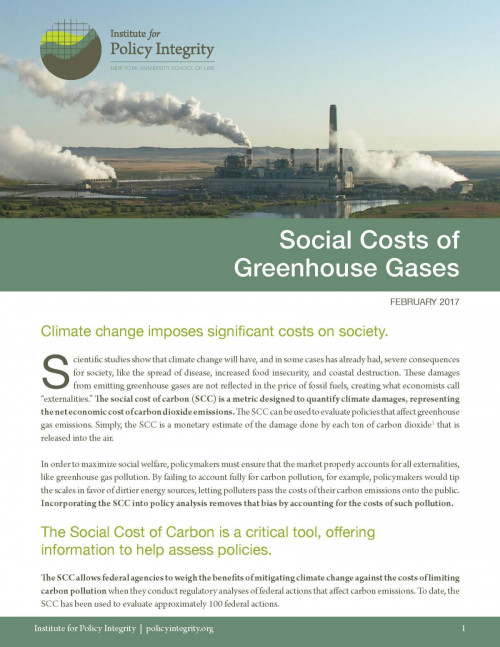
Social Costs of Greenhouse Gases
Scientific studies show that climate change will have, and in some cases has already had, severe consequences for society, like the spread of disease, increased food insecurity, and coastal destruction. The social cost of carbon (SCC) is a metric designed to quantify climate damages, representing the net economic cost of carbon dioxide emissions. Our issue brief on the Social Cost of Carbon details how this metric was developed and how it applies to federal regulatory policy.
-
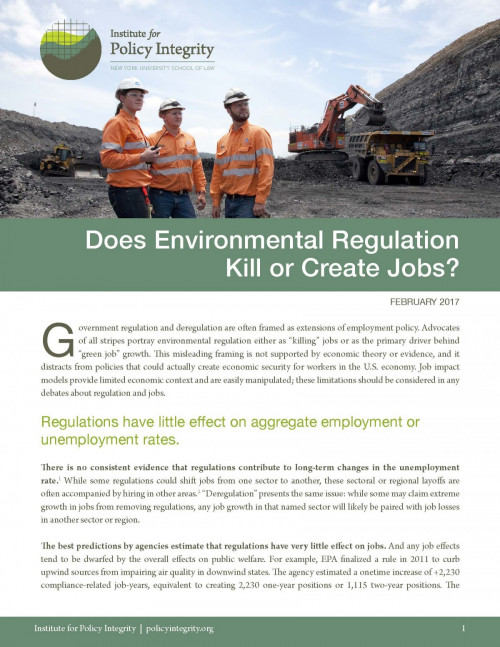
Does Environmental Regulation Kill or Create Jobs?
Our issue brief on Jobs and Environmental Regulation addresses rhetoric on “job-killing regulations,” describing the lack of consistent evidence that regulations lead to long-term changes in the unemployment rate. It also provides information on how to analyze claims about job impacts.
Viewing all publications in Issue Briefs
